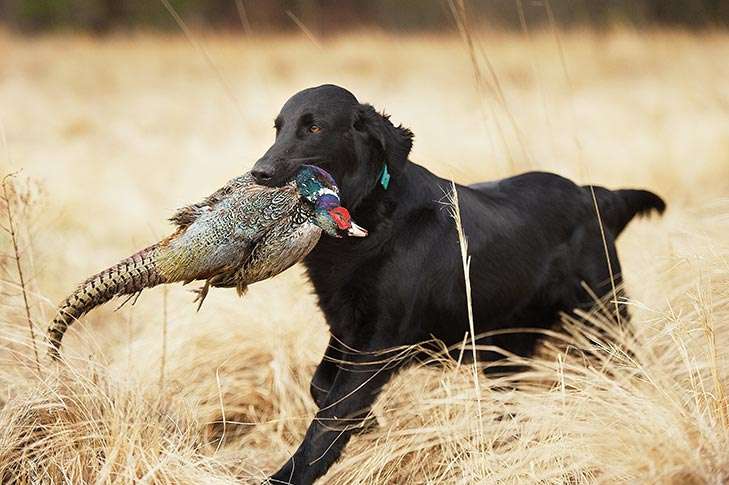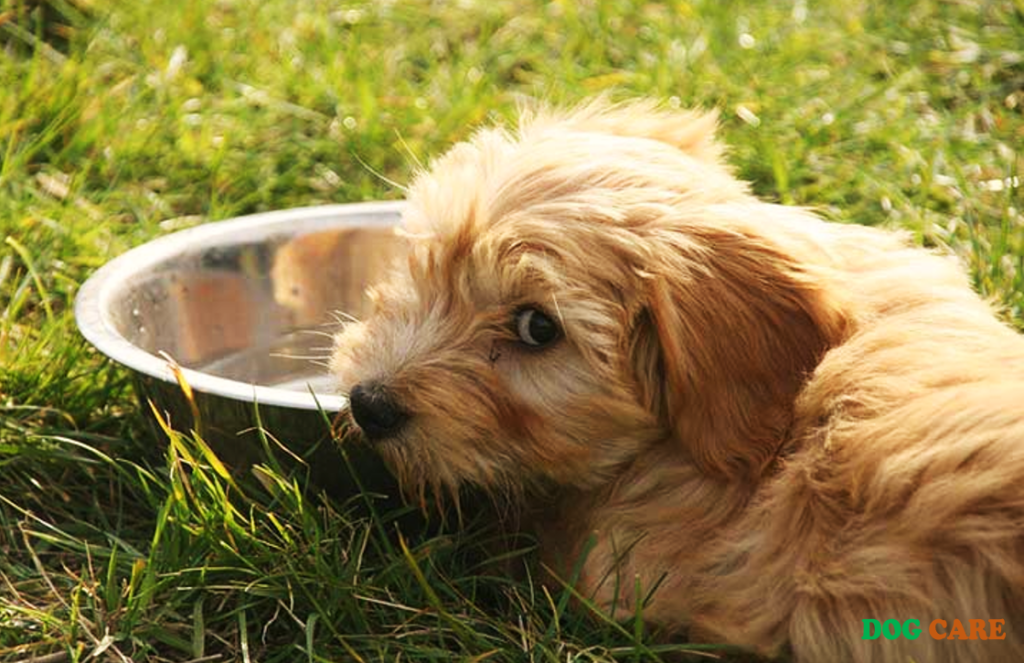The most disobedient small dog breeds are known for their stubbornness and independent nature. These breeds require patient and consistent training to overcome their challenging behavior.
Small dogs may be cute and lovable, but some breeds can be quite mischievous and defiant. If you’re thinking of adding a small dog to your family, it’s essential to consider their temperament and trainability. While every dog is unique, there are a few small breeds that commonly exhibit more disobedient tendencies than others.
These breeds can give even the most experienced dog owners a run for their money when it comes to training. We’ll explore some of the most disobedient small dog breeds and discuss the challenges they present in terms of training. So, let’s dive in and discover which breeds are known for their independent and stubborn nature.

Understanding Disobedience In Small Dog Breeds
Small dog breeds can exhibit disobedient behavior that can be challenging for their owners. Understanding the most disobedient small dog breeds can help owners address these issues and find effective training methods to ensure a happy and well-behaved pet.
Defining Disobedience
Disobedience in small dog breeds refers to their tendency to resist or ignore commands from their owners or trainers. It is important to note that disobedience does not mean small dogs are inherently bad or untrainable. Rather, it is a common trait that is often seen in certain breeds due to specific factors.
Factors Affecting Disobedience In Small Dog Breeds
Several factors can contribute to disobedience in small dog breeds. Understanding these factors can help owners and trainers develop effective training strategies to improve their dog’s obedience levels. Here are some key factors to consider:
- Size and Perception: Small dog breeds often have a reputation for being cute and cuddly, which can lead to inconsistent discipline. Owners may unintentionally allow undesirable behaviors due to their size, leading to disobedience.
- Temperament and Personality: Each breed has its own unique temperament and personality traits. Some small breeds, such as Chihuahuas and Dachshunds, are known to be more independent and stubborn, making them prone to disobedience.
- Socialization and Training: Proper socialization and training play a crucial role in a dog’s behavior. Small dogs that are not adequately socialized or trained may exhibit disobedience as a result of fear, anxiety, or confusion.
- Owner’s Attitude and Consistency: Dogs are highly perceptive animals and can pick up on their owner’s attitude and consistency. Inconsistent training methods or a lack of leadership can contribute to disobedience in small dog breeds.
- Breed-Specific Traits: Some small dog breeds, such as Jack Russell Terriers and Beagles, have strong instincts for hunting or digging. These innate traits can sometimes clash with desired behaviors, leading to disobedience.
Common Misconceptions About Small Dog Breeds
There are several common misconceptions about small dog breeds that contribute to a perception of disobedience. It is crucial to debunk these misunderstandings to better understand and address their behavior. Here are some key misconceptions:
- Small Dogs Require Less Training: Contrary to popular belief, small dog breeds require just as much training and structure as larger breeds. Small dogs have the same capacity for learning and benefiting from consistent training methods.
- Small Dogs Are Naturally Stubborn: While some small breeds may have more independent personalities, it does not mean they are inherently stubborn or impossible to train. With the right approach, even stubborn behavior can be successfully addressed.
- Small Dogs Don’t Need Exercise: All dogs, regardless of size, require regular exercise to maintain physical and mental well-being. Lack of exercise can lead to restlessness and behavioral issues, including disobedience.
- Small Dogs Are Fragile: Small dog breeds may be small in stature, but they are not delicate. Treating them as such can lead to behavioral issues and an increased likelihood of disobedience. Proper socialization and exposure to various environments can help them develop confidence.
Top 5 Most Disobedient Small Dog Breeds
When it comes to small breeds, disobedience can be a common trait among certain dogs. Whether it’s their stubborn nature or their independent streak, these dogs tend to have a mind of their own. In this article, we will take a closer look at the top 5 most disobedient small dog breeds. From the feisty Chihuahua to the energetic Jack Russell Terrier, these dogs may require a little extra patience and training.
Chihuahua
Chihuahuas are known for their sassy attitude and fearless personality. Despite their tiny size, they often believe that they’re the boss of the household. Training a Chihuahua requires consistency and positive reinforcement. With proper socialization and boundaries, Chihuahuas can be well-behaved companions.
Dachshund
The curious and stubborn Dachshund can be quite challenging when it comes to obedience. With a strong sense of determination, they may choose to follow their own agenda rather than listen to their owners. Patient training methods and mental stimulation can help keep their mischievous behaviors in check.
Jack Russell Terrier
With their high energy levels and natural hunting instincts, Jack Russell Terriers can be a handful to train. They have a strong will and require firm, consistent leadership. Engaging them in structured activities and providing them with plenty of exercise can help channel their energy in a positive direction.
Pomeranian
Pomeranians may be small in size, but they possess a big personality. Their independent nature can make them less than willing to comply with commands. Establishing clear rules and boundaries from an early age is essential for a well-mannered Pomeranian. Positive reinforcement, such as treats and praise, can also be effective training tools.
Yorkshire Terrier
The Yorkshire Terrier, or Yorkie, is a small but self-assured breed. They can be stubborn and prone to territorial behaviors if not properly trained. Early socialization and consistent training are crucial for encouraging obedience in Yorkies. Their intelligence and quick learning ability can make them receptive to training techniques.
Reasons Behind Disobedience And Training Tips
Small dog breeds can sometimes be disobedient due to their stubborn nature and independent personalities. However, with proper training and consistency, you can successfully teach them obedience and improve their behavior.
Reasons behind Disobedience and Training Tips Disobedience in small dog breeds can be frustrating, but understanding the reasons behind their defiant behavior can be the first step towards effective training and improving their obedience. Breeding and genetic traits, lack of proper training and socialization, and fear and anxiety-related issues are some of the common factors that can contribute to a small dog’s disobedience. Fortunately, with positive reinforcement training techniques and by establishing clear boundaries and consistent routines, you can help your furry friend become a well-behaved and obedient companion.
Breeding and genetic traits Small dog breeds often possess distinct and sometimes stubborn characteristics due to their breeding and genetic traits. These traits can manifest in behaviors such as stubbornness, independence, or a strong prey drive, which may lead to disobedience. For instance, the Chihuahua, known for its independent nature, may exhibit willfulness and resistance towards training commands. It’s important to remember that while these traits are part of their genetic makeup, they can be managed with the right training techniques.
Lack of proper training and socialization One of the primary reasons behind a small dog’s disobedience is the lack of proper training and socialization right from an early age. Without proper guidance, dogs may not understand their boundaries or the desired behaviors expected of them. This can lead to them disregarding commands or engaging in unruly behavior. Whether you are a new dog owner or you’ve had your small breed for a while, it’s never too late to start training and socializing them. Consistency, patience, and positive reinforcement techniques can help overcome disobedience associated with poor training.
Fear and anxiety-related issues Fear and anxiety can significantly impact a small dog’s behavior, causing disobedience and resistance towards training. Some small breeds, such as the Shih Tzu or the Miniature Pinscher, may be more prone to anxiety and fearfulness than others. Loud noises, unfamiliar environments, or traumatic experiences can contribute to their anxiety which may manifest as disobedient behavior. In such cases, it’s essential to address their underlying fears and work towards building their confidence through gradual exposure and positive reinforcement.
Positive reinforcement training techniques Positive reinforcement training techniques have proven to be effective in improving obedience in small dog breeds. Instead of focusing on punishment, positive reinforcement emphasizes rewarding desired behaviors with treats, praise, or play, encouraging them to repeat those behaviors. This method creates an optimistic and constructive learning environment, reinforcing their bond with the owner and enhancing their eagerness to obey commands. By keeping training sessions short, consistent, and enjoyable, you can effectively address disobedience issues in small dog breeds.
Establishing clear boundaries and consistent routines Small dogs thrive when they have clear boundaries and consistent routines. Setting clear rules and boundaries from the beginning helps them understand what is expected of them. Consistency in training commands, meal times, exercise routines, and reward systems builds structure and stability in their lives. Small dogs require routine to stay mentally and physically balanced. Ensuring that the entire family follows the same rules and routines helps avoid confusion and reinforces their obedience.
In conclusion, understanding the reasons behind a small dog’s disobedience and implementing effective training techniques is crucial for their overall development and well-being. By considering their breeding and genetic traits, providing proper training and socialization, addressing fear and anxiety-related issues, using positive reinforcement techniques, and establishing clear boundaries and consistent routines, you can help your small dog become a well-behaved and obedient companion. Remember, patience, consistency, and love are key ingredients in successfully training and nurturing your small furry friend into a well-mannered and obedient member of your family.
Misunderstood Princes: Overcoming Disobedience Challenges
Small dog breeds have often been labeled as disobedient due to their stubborn nature. However, with the right approach and understanding, these “misunderstood princes” can be trained to overcome their disobedience challenges. In this blog post, we will explore case studies of successfully trained disobedient small dog breeds, delve into the importance of patience, consistency, and understanding, and discuss how building a strong bond and trust with your small dog can pave the way for a harmonious relationship.
Case Studies Of Successfully Trained Disobedient Small Dog Breeds
Case studies provide valuable insights into the transformation of disobedient small dog breeds into well-behaved companions. Let’s take a look at a couple of examples:
| Case Study 1: Chihuahua | |||
|---|---|---|---|
| Breed: Chihuahua | Challenges: Excessive barking, territorial behavior | Training Approach: Positive reinforcement, socialization | Results: Improved behavior, reduced barking, friendly with visitors |
| Case Study 2: Dachshund | |||
| Breed: Dachshund | Challenges: Separation anxiety, aggression towards other dogs | Training Approach: Desensitization, consistent routines | Results: Reduced anxiety, improved sociability with other dogs |
The Importance Of Patience, Consistency, And Understanding
When it comes to training disobedient small dog breeds, patience, consistency, and understanding are key factors. These traits not only help foster a positive learning environment but also ensure long-term behavioral changes. Let’s explore their significance:
- Patience: Taking the time to understand your small dog’s behavior and being patient with their progress is vital. Rushing the training process can lead to setbacks.
- Consistency: Consistent training methods and routines establish clear expectations for your small dog, promoting better understanding and obedience.
- Understanding: Recognizing that disobedient behavior in small dogs may stem from fear, insecurity, or lack of socialization helps you tailor your training approach to address their unique needs.
Building A Strong Bond And Trust With Your Small Dog
Building a strong bond and trust with your small dog is crucial for overcoming disobedience challenges and nurturing a healthy relationship. Here are a few tips to strengthen your bond:
- Spend quality time together: Engage in activities that your small dog enjoys, such as playtime, walks, or training sessions. This not only provides mental stimulation but also strengthens your connection.
- Positive reinforcement: Rewarding your small dog’s good behavior with treats, praise, and affection creates a positive association and builds trust between you.
- Effective communication: Learn to understand your small dog’s body language and signals, allowing you to respond appropriately and establish effective communication.
By implementing these practices and learning from successful case studies, you can overcome disobedience challenges and create a harmonious relationship with your small dog. Remember, patience, consistency, and understanding are the keys to transforming a disobedient small dog into a well-behaved companion.
Frequently Asked Questions For Most Disobedient Small Dog Breeds
What Is The Most Disobedient Dog Breed?
The most disobedient dog breed is the Basset Hound, known for its stubborn nature. These dogs have a strong independent streak and can be challenging to train. Patience and consistent training methods are necessary to handle their disobedience effectively.
What Is The Most Disloyal Dog Breed?
The idea that certain dog breeds are inherently disloyal is a misconception. However, it’s important to remember that individual dogs may display varying levels of loyalty regardless of their breed. Factors such as upbringing, training, and socialization play a significant role in a dog’s behavior.
What Is The Least Active Small Dog?
The Basset Hound is known to be one of the least active small dog breeds.
What’s The Most Aggressive Small Dog?
The Chihuahua is often considered the most aggressive small dog due to its protective nature and tendency to be territorial.
Conclusion
To wrap things up, it’s crucial to acknowledge that certain small dog breeds have a reputation for being more disobedient than others. From the determined Chihuahua to the spirited Dachshund, these pooches can pose a challenge for even the most patient owners.
Nonetheless, with proper training, consistent discipline, and an understanding of their unique temperament, owning a disobedient small dog breed can still be a rewarding experience. Remember, patience, consistency, and positive reinforcement are key when it comes to establishing a harmonious bond with your furry companion.


